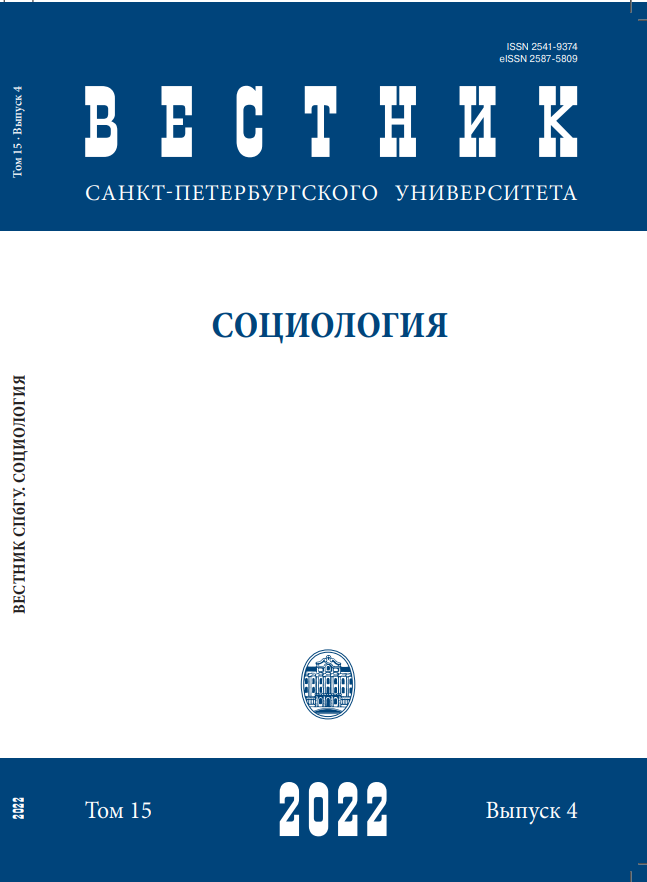Civiс solidarity in the context of the COVID-19 pandemic
DOI:
https://doi.org/10.21638/spbu12.2022.403Abstract
The COVID-19 pandemic will remain in history as one of the most significant and tragic events that took place in 2020-2021. The threat of rapid distribution of coronavirus demanded from state bodies of various countries of decisive actions. These actions were aimed at ensuring the safety of their population, as well as to prevent mass infection of the population. The need to urgently mobilize people to combat the epidemiological threat made urgent work to build the appropriate forms of civil solidarity. The Russian Federation also took part in this process. However, the urgent need to coordinate this process in the shortest possible time inevitably led to increased load on the integration infrastructure of Russian society. As a result of such a load, this integration structure and its inherent features became more understandable. In this process, it was also possible to identify those problems that are usually difficult to diagnose in a society in a state of balance. This article presents the results of a sociological study devoted to the analysis of the civil solidarity of residents of St Petersburg in the face of the threat of the spread of pandemia COVID-19. The work presents a methodological construct based on the works of classics of sociology. This construct made it possible to analyze the specifics of the integration of Petersburgers into those relations of civic solidarity that make it possible to counteract the risks of coronavirus spread. The article describes the logic of development and the structure of civic solidarity in the conditions of the COVID-19 pandemic. The article also analyzed by citizens the perception of the threat of coronavirus distribution as a factor in public life and its integration significance in the context of the formation of a particular joint environment. The result of the study was a description of the most common solidarization practices aimed at counteracting the pandemic, and the disclosure of the main factors that affect the civil behavior of the city’s inhabitants.
Keywords:
civic solidarity, civil mobilization, social solidarity
Downloads
References
Downloads
Published
How to Cite
Issue
Section
License
Articles of "Vestnik of Saint Petersburg University. Sociology" are open access distributed under the terms of the License Agreement with Saint Petersburg State University, which permits to the authors unrestricted distribution and self-archiving free of charge.




